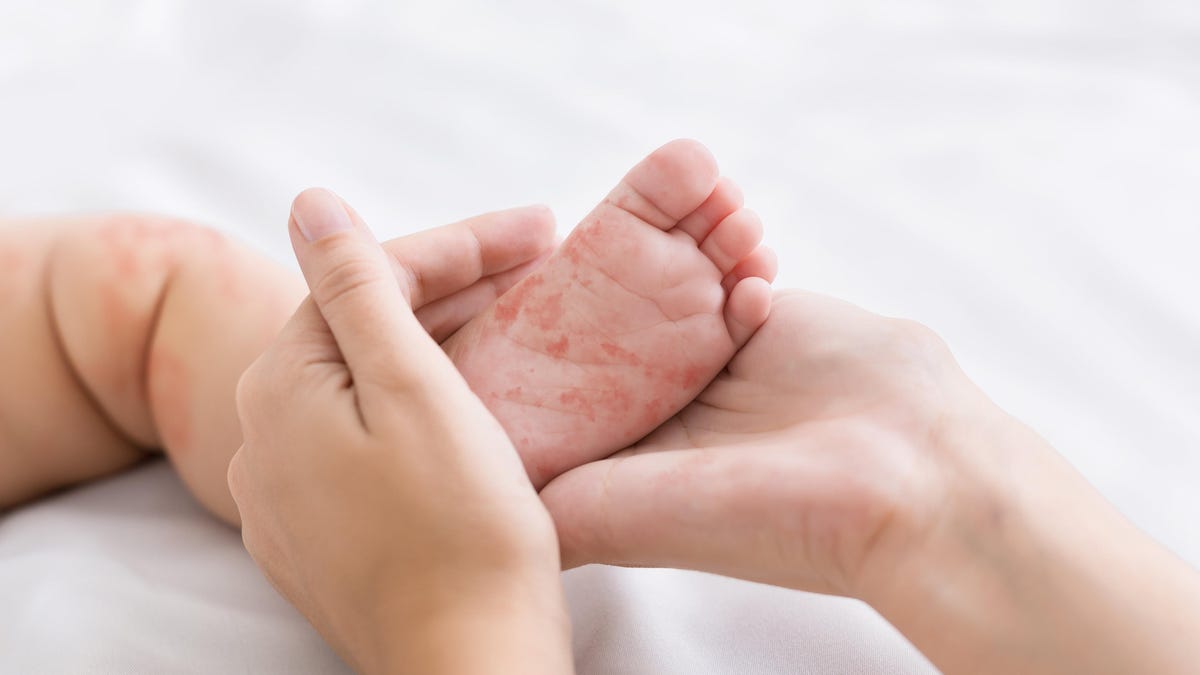Measles Resurgence in the U.S.
Measles, a highly contagious viral disease, has made an unwelcome return to the United States, infecting numerous children across multiple states this year. This troubling development raises concerns about the factors contributing to the increased prevalence of measles on both national and global scales. Despite widespread speculation, it is essential to clarify that COVID-19 is not the primary culprit behind the resurgence of measles.
Current Situation
Recent data from the Centers for Disease Control and Prevention (CDC) reveals that, as of early April, there have been 113 confirmed measles cases documented in 18 states, with Illinois reporting the highest number of cases. Alarmingly, two-thirds of the affected individuals are children, and half of them are under the age of 5. While there have been no reported fatalities, 65 individuals required hospitalization for isolation or to manage measles-related complications, with 37 of them being young children.
It is worth noting that measles was declared eliminated in the U.S. in 2000, signifying that most cases seen today are imported from other regions. Nevertheless, outbreaks can still occur within the country. Some of the ongoing measles outbreaks trace back to late last year, with the current tally of cases already doubling that of 2023. This year’s numbers are on course to surpass the record set in 2019, which documented over 1,200 cases.
Debunking the COVID-19 Connection
Amid discussions on social media platforms regarding the measles outbreaks, there have been suggestions linking COVID-19 to the resurgence of measles. Some individuals argue that the weakened immune systems caused by COVID-19 have created conducive conditions for the re-emergence of measles. This line of reasoning extends beyond measles and has been used to explain the recent increase in tuberculosis cases and other disease outbreaks, including clusters of severe pediatric hepatitis in 2022.
Contrary to popular belief, attributing the return of measles to COVID-19 does not align with existing scientific knowledge. The measles virus can easily spread among individuals lacking prior exposure to the disease, meaning that any community with a significant number of unvaccinated individuals remains vulnerable to measles outbreaks. Given that measles is endemic in many parts of the world, new outbreaks can arise from various sources.
In a statement to Gizmodo, Emily Smith, an epidemiologist specializing in infectious diseases at George Washington University’s Milken Institute School of Public Health, emphasized that measles outbreaks among unvaccinated populations existed long before the COVID-19 pandemic.
Vaccination and Immunity
All U.S. states mandate vaccinations against measles and other common pathogens before children enroll in public schools. While the national vaccination rate remains relatively high at 93.1%, it has fallen below the recommended 95% threshold for herd immunity. Some regions exhibit even lower vaccination rates, creating conducive environments for measles transmission if introduced.
According to the CDC, 83% of measles cases involve unvaccinated individuals or those with an unknown vaccination status. Another 12% of cases affect individuals who have received only one of the two required vaccine shots for measles. Although measles vaccines are highly effective, with a protection rate of over 99% after completing both doses, occasional breakthrough cases can occur when the virus circulates within a community.
Moreover, there is minimal evidence supporting the notion that COVID-19 or its vaccines compromise the immune system on a broad scale. Richard Rupp, a pediatrician and the director of clinical research at the University of Texas Medical Branch’s Sealy Institute for Vaccine Sciences, emphasized that measles has always been a serious disease and should not be trivialized in discussions about COVID-19.
Addressing Misconceptions
It is essential to dispel misconceptions regarding COVID-19’s impact on immunity and disease resurgence. There is no substantial data indicating that COVID-19 induces widespread immune deficiency or enhances susceptibility to other infections on a population level. By attributing various health issues solely to COVID-19, individuals risk overlooking the complexities of different diseases and their distinct mechanisms.
While the COVID-19 pandemic may have indirectly influenced the global resurgence of measles by disrupting vaccination programs and undermining public confidence in vaccines, it remains crucial to reinforce the value of vaccination and ensure universal access to preventive measures against measles and other preventable diseases.
Image/Photo credit: source url





